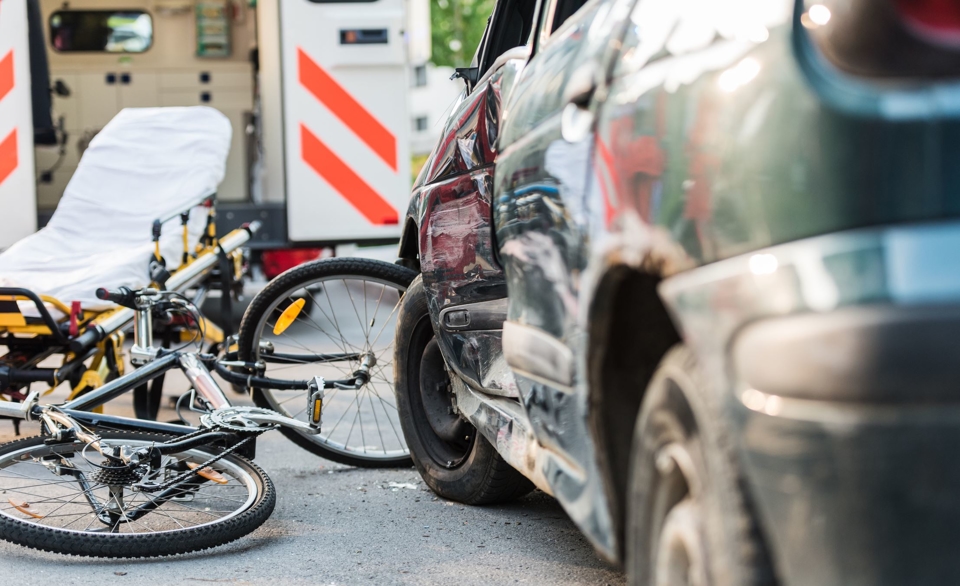Federal estimates suggest more than 2 million U.S. drivers suffer injuries in car accidents each year. Another 35,000 plus people lose their lives. For car crash survivors and grieving family members, the damage they suffer can easily exceed millions of dollars.
Have you suffered a serious injury due to a car accident that was not your fault? Below, we outline the types of damages in car accident cases and other important factors to consider for car accident compensation.
Types of Damages in Car Accident Cases
The worth of your auto accident case depends upon the damages you suffered. Different types of damages include:
- Economic damages. These are damages that include certain unpaid medical bills, lost income (present and future), travel expenses, car towing, storage and rental fees as well as costs associated with home modifications and funeral expenses.
- Non-economic damages. These damages cover intangible expenses, such as pain and suffering, loss of consortium (negative impact on benefits of a family relationship) or loss of enjoyment of life.
- Punitive damages. A jury may award punitive damages, which are available in certain cases. Punitive damages are also called “punishment damages” and are only awarded if the defendant’s actions were particularly egregious.
How Are Pain and Suffering Damages Calculated After a Car Accident?
After a car accident, you may experience significant and life-changing injuries, resulting in pain and suffering both now and in the future. If another person’s negligence caused the car crash, then you may have a right to seek compensation for your injuries, as well as your pain and suffering. While some damages like lost wages and certain unpaid medical bills are easy to understand, many people have no idea how to account for pain and suffering. A car accident attorney can help you understand how the Courts will calculate pain and suffering in your particular case.
What Exactly Is Pain and Suffering?
Simply put, pain and suffering are any type of physical or emotional stress a person experiences after an accident. It is important to recognize that pain and suffering extend far beyond physical stress. For example, the Courts also consider the emotional and mental pain and suffering of the victim. In addition, the Courts may consider any future pain and suffering the victim may still endure due to the crash. This can include depression, PTSD, physical pain, disability, impairment, loss of activities, and the loss of enjoyment of life.
Assessing Pain and Suffering Damages
Since pain and suffering come in many forms, calculating the amount of damages in a car accident case can be difficult. Unlike medical expenses, there are no receipts detailing the cost of an accident victim’s pain and suffering. As such, it is up to the Courts to determine the best way to compensate an accident victim for their suffering.
When determining pain and suffering damages, the Courts examine many different types of evidence. This includes:
- The physical pain an individual feels,
- Interference with normal living,
- Shock of the injuries,
- Extent of the injuries,
- Mental anguish,
- Limitations on enjoying life,
- Limitations on pursuing one’s hobbies and activities,
- Impairments to physical health,
- Future risk of harm,
- Current and future disabilities and
- Loss of the ability to work.
Fortunately for New Jersey car crash victims, there is no cap on the maximum amount of money a Court can award for pain and suffering. However, in many cases, there are insurance coverage limitations to consider. Thus, it is up to the Court, and usually a jury, to decide how much compensation is appropriate to award a particular victim.
Collecting Evidence to Support a Pain and Suffering Claim
Placing a monetary value on pain and suffering is not easy or automatic. As such, evidence plays an important role in the process of calculating pain and suffering damages. Therefore, your New Jersey auto accident lawyer will need to present many forms of evidence to substantiate a claim for pain and suffering. Forms of acceptable evidence include:
- Photos of auto accident injuries,
- Medical diagrams and demonstrative exhibits showing the injured body parts,
- Medical records explaining the injuries and how the accident caused them,
- Records of prescribed medications,
- Documentation of lost time at work,
- Medical expert testimony,
- Lay witness testimony from family, friends, and co-workers describing your ability to participate in activities both before and after the collision
Due to the nature of pain and suffering claims, it is important to have an experienced law firm in your corner from the start. Your attorney will need to begin building your case and compiling the evidence needed to win maximum compensation.
How Car Accident Damages Are Calculated
Each car accident case is unique and it is for this reason that we recommend speaking to an attorney to calculate your damages. Your attorney will be able to take into account the specific circumstances of your case in accordance with the law.
For example, we can use a car accident case involving a spinal cord injury to further explore the concept of damages. Let’s say, for instance, that a 25-year-old healthy male suffers a complete C1 spinal cord injury during a crash.
This person suffered tetraplegia due to the severity of his injuries, meaning that he requires in-home medical care, a ventilator, and other medical equipment and home modifications. In addition, he requires travel to a therapist each week, which means he needs coverage for travel expenses and vehicle modifications. The man was a Wall Street trader making $134,000.00 a year and can no longer perform the duties required by his former job. These are all examples of economic damages he suffered due to the accident. A jury would consider his lost income, loss of future earning capacity, certain unpaid medical expenses, and travel costs.
The man was also a triathlete who had a wife, who unfortunately left due to an inability to live with her former spouse’s injuries. His enjoyment of life went into a significant downward spiral, causing severe mental anguish on a daily basis. Due to his injuries, he lost his ability to enjoy his former activities and no longer has the love and support of his former spouse. These non-economic damages and the man’s pain and suffering could be considered by a jury.
Catastrophic injuries like the one described above can easily saddle accident survivors with millions of dollars in tangible expenses. According to the Christopher & Dana Reeve Foundation, a C1 spinal cord injury could impose more than $4 million in lifetime costs on a healthy 25-year-old male.
Your attorney will use a number of methods to obtain an accurate picture of your economic damages, including medical expert testimony, gathering medical records, income tax documents, and other evidence. The method for calculating non-economic damages depends on the circumstances of your case.
What If the Insurance Company Contests My Damages?
Insurance companies may contest your non-economic damages, or the merits of your case altogether. Many car accident cases settle. However, it may be necessary to take your case to trial, if the insurance company refuses to fully compensate you for your damages. For this reason, you should select an attorney who has trial experience.
An experienced personal injury attorney has the knowledge and resources to contest an insurance company that refuses to negotiate a fair settlement.
Contact Our New Jersey Auto Accident Lawyers
Have you suffered a serious injury due to a car accident in South Jersey? If so, then the at-fault driver should compensate you for your damages. At Rosner Law Offices, P.C., our car accident lawyers can answer all of your questions after a serious accident. We have experience taking on cases that involve catastrophic injuries. Call or text us today at (856) 502-1655 or contact us online to schedule a free consultation.






